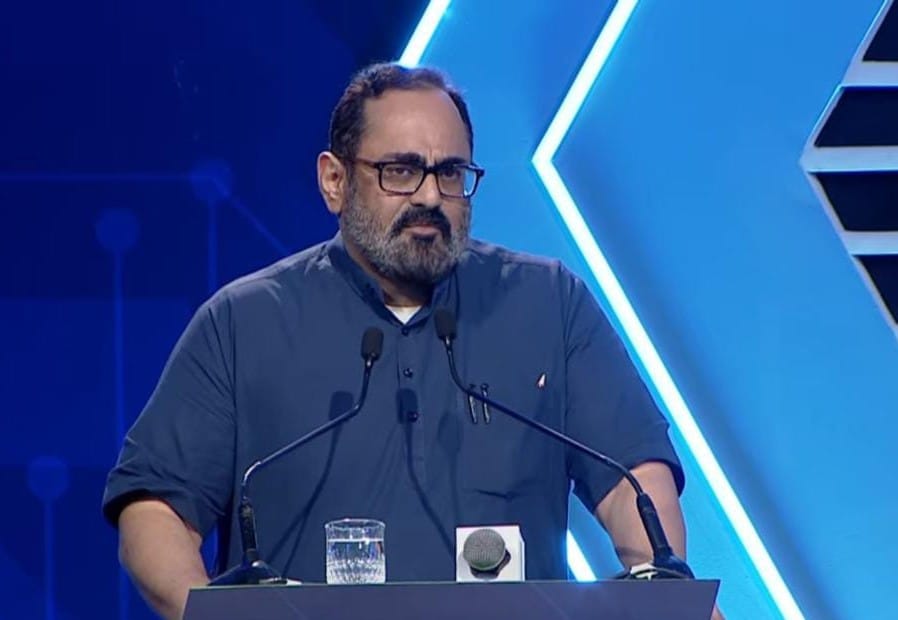Indian programme has diverse collections of datasets of citizens from all parts of the country, says Rajeev Chandrasekhar in reference to avoiding AI bias
Bengaluru, NFAPost: India will spend some $200 million to develop an Artificial Intelligent (AI) ecosystem that will make e-governance platforms more accessible, said Rajeev Chandrasekhar, Minister of State for Electronics and Information Technology, at the Business Standard TechTalk in Bengaluru.
The country will prioritise using AI for governance applications on India Stack, language model Digital India Bhashini, and healthcare. It will encourage the private sector and start-ups to develop AI use cases, said Chandrasekhar.
India Stack comprises open-source software application programming interfaces (APIs) of government-backed services such as Aadhaar, unified payment interface (UPI), and DigiLocker. The open-source model has a plethora of computer languages, architecture, APIs, libraries or lexicons, user interfaces, and the apps themselves.
“We will bring in learning and intelligence into that stack, which will sit on all these huge amounts of data we have about consumer behaviour and what citizens are consuming,” said Chandrasekhar, adding that AI will take the duplication and fraudulent use of subsidies to almost zero.
The government will create guardrails for emerging technologies like AI. “I can share with you one of the big areas the new Digital India Act, which will be replacing IT Act, 2000, will be the framework of guardrails for ethical use without disrupting innovation,” he said, referring to legislation proposing to regulate the country’s fast-growing digital market.
Under its IndiaAI programme, the government has conducted consultations with industry stakeholders for launching a datasets programme. The huge datasets held by the government, when organised and made available in a curated form, will become a game changer for the AI ecosystem in the country.
“One of the big concerns about AI is the fear of bias and the lack of diversity in the underlying datasets that are fueling these (AI language) models. One of the big reasons that the India datasets programme is so powerful is that we represent one of the most diverse collections of datasets of citizens from all parts of the country,” said Chandrasekhar.
‘Govt data sets only for Indian start-ups’
“Currently our thinking is that the access to India datasets programmes will be offered to essentially either Indian researchers or start-ups. Nothing precludes the Indian start-ups from collaborating with big global companies, but certainly, we will allow direct access only to the Indian start-ups.”
In the union budget for 2023-24 in February, the government announced establishing three centres of excellence for AI. These centres will be connected with academic researchers, the industry and start-ups. The minister said there will be a networked model for AI.
“Just like UPI was built to solve a government problem and has created one of the most vibrant process fintech ecosystems in the world, we believe AI can make governance smarter, the process of scheme planning much more intelligent, data-led with build-on models. At the same time it will create an adjacent ecosystem of innovation around AI, for which we are building a framework,” Chandrasekhar said.





